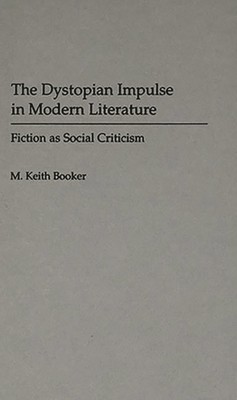
- We will send in 10–14 business days.
- Author: M Keith Booker
- Publisher: Praeger
- ISBN-10: 031329092X
- ISBN-13: 9780313290923
- Format: 14.9 x 22.9 x 1.9 cm, kieti viršeliai
- Language: English
- SAVE -10% with code: EXTRA
Reviews
Description
While literary utopias depict an ideal society and reflect an optimistic belief in the triumph of humanity and government, dystopias present a society marked by suffering caused by human and political evils. This book offers a detailed study of several literary dystopias and analyzes them as social criticism. The volume begins with a discussion of utopias, dystopias, and social criticism. By drawing upon the theories of Freud, Nietzsche, and others, Booker sets a firm theoretical foundation for the literary explorations that follow. The chapters that come next discuss Zamyatin's We, Huxley's Brave New World, and Orwell's 1984 as social criticism of totalitarianism, Stalinism, the dangers of capitalism, and fascism. Later chapters consider dystopias after World War II, contemporary communist dystopias, and postmodernist dystopias in the West.
EXTRA 10 % discount with code: EXTRA
The promotion ends in 21d.11:21:27
The discount code is valid when purchasing from 10 €. Discounts do not stack.
- Author: M Keith Booker
- Publisher: Praeger
- ISBN-10: 031329092X
- ISBN-13: 9780313290923
- Format: 14.9 x 22.9 x 1.9 cm, kieti viršeliai
- Language: English English
While literary utopias depict an ideal society and reflect an optimistic belief in the triumph of humanity and government, dystopias present a society marked by suffering caused by human and political evils. This book offers a detailed study of several literary dystopias and analyzes them as social criticism. The volume begins with a discussion of utopias, dystopias, and social criticism. By drawing upon the theories of Freud, Nietzsche, and others, Booker sets a firm theoretical foundation for the literary explorations that follow. The chapters that come next discuss Zamyatin's We, Huxley's Brave New World, and Orwell's 1984 as social criticism of totalitarianism, Stalinism, the dangers of capitalism, and fascism. Later chapters consider dystopias after World War II, contemporary communist dystopias, and postmodernist dystopias in the West.


Reviews